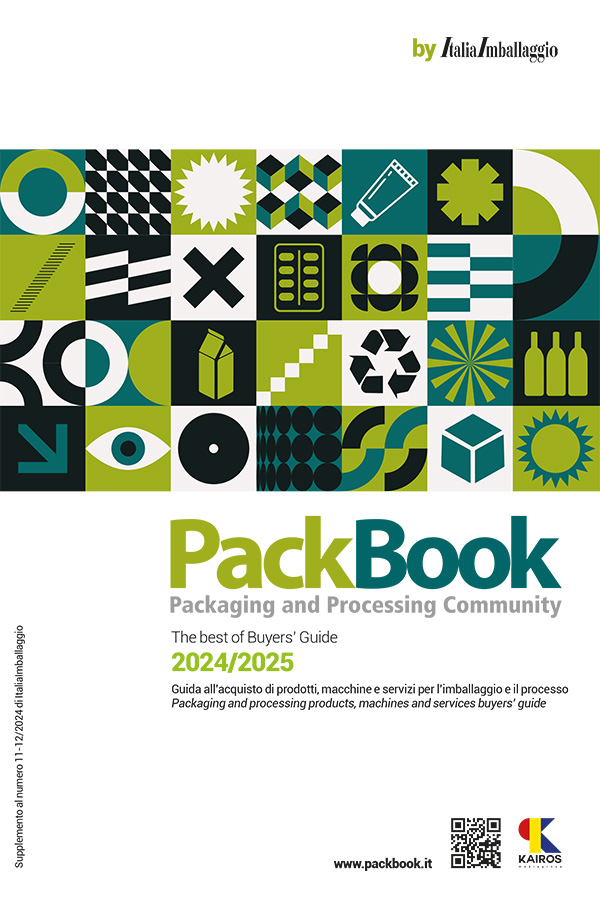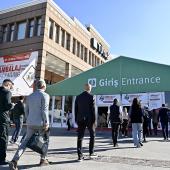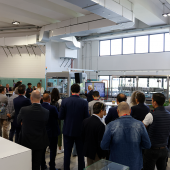With flexible it’s possible
Science-based sustainability and economic growth: an inseparable combination for flexible packaging. Notes from the Giflex conference of 25 October 2024.

Held in Turin, 2024 Capital of Business Culture, at the Industrial Union Conference Centre, the Giflex conference with the title “With flexible it’s possible!” offered a wide and lively overview of one of the key sectors in the world of packaging.
Despite market fluctuations, flexible packaging is, in fact, one of the most successful packaging areas, thanks to its versatility and characteristics of lightness and recyclability that make it an ideal solution for those looking for increasingly sustainable solutions without renouncing the essential qualities of packaging, from product safety to consumer information.
It was precisely the concept of packaging as a media, that Alberto Palaveri the president focused on in his talk, referring to the recent Bennet campaign in which extracts taken from important literary works have been put on the packages of private label products distributed in mass retail supermarkets.
People read more packaging than they read books, headlined ItaliaImballaggio a few years ago and it’s perfectly true, according to Palaveri, referring to a market of 450,000 tonnes, 4.5 billion of turnover and over 12,000 employees.
LCA protagonist with reference to the PPWR
Among institutional contributions, such as that of the president of Unione Industriali (Employers’ Association), Marco Gay, and the Minister of the Environment, Gilberto Pichetto Fratin, the Flexible Packaging Group programme, part of Assografici, highlighted the centrality of the path to construct a culture of sustainability and circularity in packaging based on reflections and analyses of a scientific nature, prioritising its value as a vehicle of information, safety, product quality and brand enhancement.
The event in Turin was, in fact, the stage for the presentation by Paola Riccardi and Andrea Cassinari of Giflex’s LCA guidelines which allow for scientifically based assessments of the environmental impact of flexible packaging to be carried out using the LCA - Life Cycle Assessment methodology. The guidelines are the result of a study carried out by the Association’s Scientific Groups which had the task of presenting a strategic positioning document that supports the sector in its path towards a circular economy model consistent with recent developments in the European framework of international sustainability principles.
«The PPWR (Packaging and Packaging Waste Regulation) European Regulation has taught us the effectiveness of team work and the importance of being ahead of the game and not on the defensive. In the future the competitiveness of our businesses will hinge on virtuous models and solutions for the environment. We represent a highly technological sector that works behind the scenes of large brands. Our packs are icons of our times. Precisely for this reason we want to be bearers of a scientific sustainability culture» Palaveri concluded.
Packaging is protagonist with regards to regulations, industry and… space
Francesca Siciliano Stevens echoed Palaveri’s views to the general secretariat of EUROPEN, who presented the Packaging Industry Manifesto and the points of contact with the PPWR.
«The current configuration of the regulation is a serious risk for the single market and the free circulation of goods, one of the pillars of the European Union» Stevens underlined. «Working constantly side-by-side with stakeholders and operators in the sector, EUROPEN has drawn up a document that summarises essential aspects for the development of policies able to combine industrial production and sustainability. This is why the concepts of better regulation, the strengthening of the single market, social cohesion, competence and consumer protection are the key themes of the Manifesto».
The application aspect was also referred to in the conference, with a particular focus, among other very interesting contributions, by Erik Ciravegna, University of Bologna and Marco Scatto, expert in biopolymers of Tiberino 1888 - Sudalimenta, who recounted the experience of astronauts using flexible packaging for food, talking about the value of narration, without which a packaging is “only” a container.
«Flexible packaging and value stories is the focus of research carried out by Unibo with the idea of enhancing a simple and extraordinary object. We then developed a method of flexible storytelling which allowed us to produce a manual for the sector available to all operators in the supply chain».
The value of storytelling re-emerged, in particular, in the contribution of Marco Scatto, dedicated to food supplies in the international space station.
«Since Napoli’s 2007 mission, continuing with Vittori and Palmitano, we have supplied dehydrated foods for astronauts, which require increasingly evolved packaging to manage technical problems such as microgravity, cosmic rays and high gas barrier properties. The aim is to provide gourmet food with a high nutritional value that also guarantees complete food safety. It’s a challenge in which flexible packaging is a safe and light protagonist, in an environment in which weight and biosafety are essential for the quality of life in orbit. They are hi-tech solutions which we will soon see on earth to meet technical requirements in particular and extreme work environments».


















